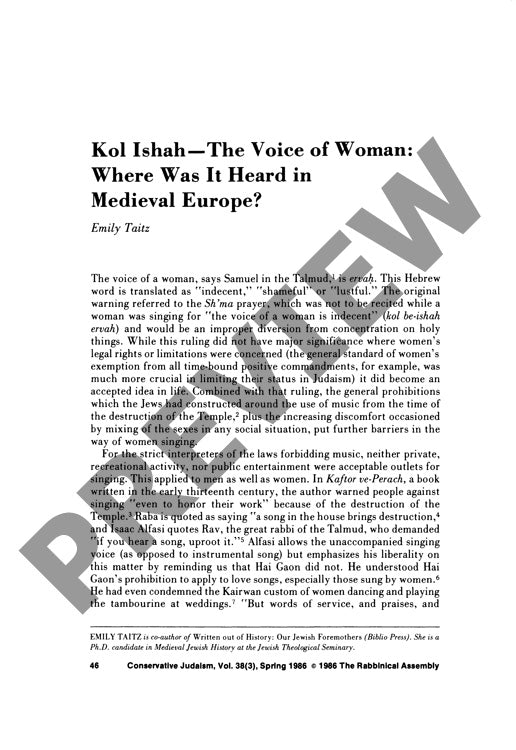Kol Ishah the Voice of Woman Where Was I
Couldn't load pickup availability
Jewish women's voices resounded through medieval Europe despite the Talmudic prohibition of "kol ishah ervah" (a woman's voice is indecent), revealing a striking disconnect between religious law and lived experience. Across Germany, France, Spain, and Italy, women's singing emerged in four distinct spheres: domestic rituals, professional entertainment, mourning ceremonies, and synagogue worship. Through analysis of rabbinic responsa, historical documents, manuscript miniatures, and literary sources, clear evidence emerges of women's persistent vocal presence - from the renowned female cantor Urania of Worms to professional mourners in Spain and music teachers in Jewish schools. Regional variations proved significant, with Italian Jewish communities demonstrating notably greater acceptance of women's musical participation compared to their Northern European counterparts. The documented activities of these women, traced through medieval Jewish legal literature, historical records, and artistic evidence, demonstrate a complex negotiation between religious restrictions and practical necessity. Their sustained presence in both religious and secular musical life challenges traditional assumptions about the enforcement of rabbinical prohibitions, highlighting instead the fluid boundaries between religious ideals and medieval Jewish social reality.

More Information
-
Physical Description
-
Publication Information
Published 1986
ISBN
-
Publication Credits
Emily Taitz

